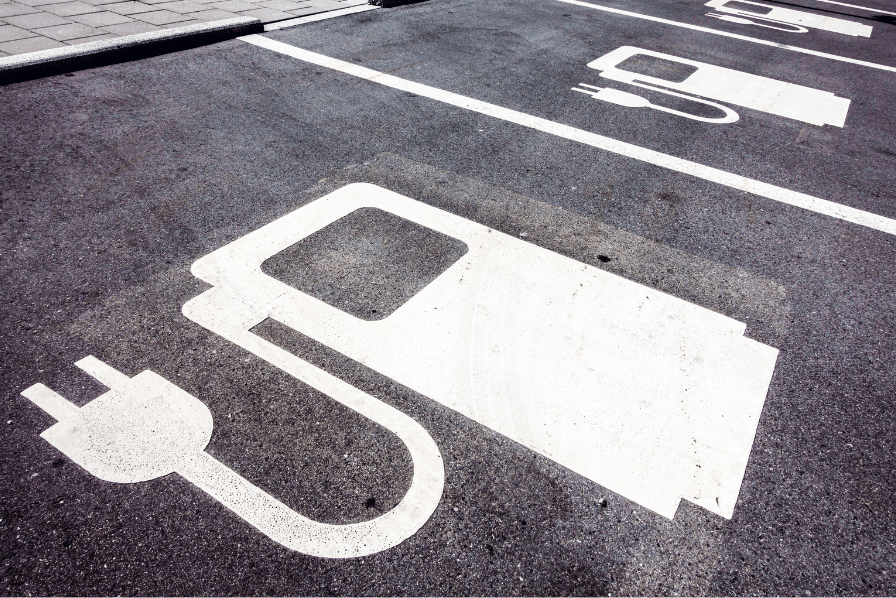If you’re looking for a new car, then you may have browsed in the electric vehicle (EV) section. While electric vehicles have been around for a long time, unless you’re a car enthusiast you’re probably not fluent in the pros and cons of owning an EV. Of course there are plenty of selling points that we know about, such as the number of emissions they emit into the air when driving. But we also know some less popular facts about electric cars – and that’s that they tend to cost a little more than your standard car on finance.
While there are plenty of facts out there, there are also a lot of rumours. Statements that get repeated, ideas that seem convincing, and soon enough you’ve given yourself a reason for or against buying an electric vehicle. One of the most popular debates is the accessibility of charging it. In a survey we recently conducted with 2000 car buyers, it was noted that 62 percent of people think the charging infrastructure for electric vehicles in their area isn’t good enough.
How often do you need to charge your vehicle?
How long is a piece of string – are we right? It all depends on how you use it. But we like to spin this slightly. If you were to leave your house, how often do you use a full tank in a day and require fuel when out and about? Not very often – if ever. We know what you’re about to say – but a tank of fuel lasts longer than a full charge. While that’s true, it’s not as if a full charge is a fraction of the full tank’s capacity. A full charge can get you on average 200 miles. While there are plenty of electric vehicles with a larger charge than that, there are only a few with less.
So it isn’t a case of needing to charge the car every time you leave the house. But, if you stay overnight somewhere there could be a need to charge it when you’re away from your home. If you’re so far away from home that you cannot drive home at night, looking at the infrastructure in your area to see if an electric vehicle is suitable or not, probably isn’t the right method of testing anyway.
If you drive locally, or even up to 100 miles a day, and park at home, you’ll rarely need to charge the car when you’re out and about. We’re just thinking practically.
The reality of charging stations in the UK
We know that while what we say makes sense, that doesn’t persuade anyone to buy a vehicle just because it isn’t as inconvenient as they first anticipated. So what is the reality of charging when out and about?
Well, if charging stations all go offline at once, then it can lead to large queues at rest stops. But there are plenty of charging stations available in popular areas, such as supermarkets and shopping centre car parks. There may be restrictions on how long you can charge your car for, but if it’s just enough to get you home then that’s all you need. Plus, electric vehicle chargers at those locations tend to be speedier than the ones at your home, so you won’t need to wait as long for a full charge.
In total, there are over 15,500 electric vehicle charging locations in the UK. That’s more places to charge than petrol stations.
How long will it take to charge my electric vehicle?
If you’ve looked into an electric vehicle then you’ll notice that charging it at home is an overnight job. That’s fine while your car is on the driveway, you’re all tucked up in bed, and you have nothing else to do. But if you’re on the road you’re probably keen to get going. Which means you don’t have time to wait. Fortunately, there are different chargers in these charging locations.
In car parks of supermarkets, leisure centres, and other public areas, you will find what’s known as a fast charger. This charges at roughly 7kW or 22kW and takes three to four hours for a full charge. Which is fine if you’re heading for a long day of shopping, but if you’re doing a pit stop, you want to be on the lookout for a rapid charge. These are typically rated 43kW and found on motorway service stations. They take 30-60 minutes to charge fully, however it’s only compatible with rapid-charging function electric vehicles.
So when you’re out and about it might take longer than you’d hope to charge, depending on what type of vehicle you have. If you look at it realistically – you just need to get home. Then you can go back to plugging the car in and getting your own eight hours of recharge.
If you’re looking to buy an electric car with car finance, please contact the team at ChooseMyCar. Even if you have no deposit or have bad credit, we can help you secure your next car.






